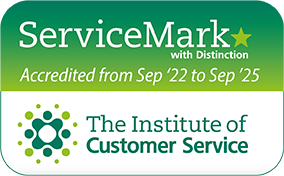If you have received an e-mail asking you to complete a survey from the ICS, please click here to read more about this request.
Teaching children about money now goes beyond collecting a few pennies in a piggy bank.
According to a survey by M&G investments, 83% of parents recognise the value of teaching their children about money management, however, one in six do not feel confident enough to do it themselves.
How can you start to teach your children good money habits if you’re not 100% confident with your own?
We’ve listed four top-tips to help get you started:
Start at an early age
Research by the government’s Money Advice Service and behavioural experts at Cambridge University suggested that adult money habits are typically set by the age of seven as this is when children fully grasp the value of money. With this in mind, it’s better to start basic education before then. We’re not suggesting you teach your child the inner workings of the stock market, but simple activities such as counting money and actively encouraging the saving of any pocket money or a gifted cash sum will start to build awareness of just how important a few pennies can be.
Make it relevant
Weave financial education throughout your everyday activities so your child can start to see the role money can play in their daily lives – whether that is spending today or saving for tomorrow. For instance, when you next visit the local corner shop for a pint of milk and a loaf of bread, involve your child in the payment process. Let them hand over the cash and help count the change given back.
Another example is to give them pocket money and then help analyse and learn from off-the-cuff spending. For example, if they blow their cash on a Barbie and do not have enough left for the latest Disney DVD, they will learn first-hand that money, unfortunately, does not grow on trees.
Be a good example
Teaching good financial habits starts with you. Children tend to adopt behaviours from their parents or guardians, so make sure you’re setting a healthy example at home. This is important as financial education isn’t the sole responsibility of your child’s school. Although financial education in the classroom is important, it’s also up to you to encourage good money management outside of the school gates. You may find it also motivates you to straighten out your finances and improve your relationship with money.
Use tools available to you
Whether it’s free programmes on the internet or extracurricular activities, there are lots of different ways to encourage your child to interact with money and develop a good savings habit early on.
Your local bank or building society may have a young persons’ education scheme they could join. Take our Junior Newbury Building Society (JNBS) programme as an example. We work with schools in Berkshire, Hampshire and Oxfordshire to help children seven and older understand the importance of saving. The initiative encourages positive, healthy discussion about money as children open their own ‘branch’ within their school and act as ‘cashiers’ responsible for ensuring student payments are correctly collected and calculated.
Board games are booming in popularity to help teach financial responsibility in a fun, interactive way. Pop to the Shops is one example of a popular game which develops number and counting skills as players use fake coins to purchase everyday items from various shops on the board, and give other players who visit their shop the correct change. BBC’s online education hub Bitesize also has free, cooperative resources about financial decision making for children aged five to 11.
If you would like to talk to one of our qualified savings advisers about which of our savings accounts would be right for you or your child, contact us or visit your local branch.
For a full listing of our current savings accounts, click here.






